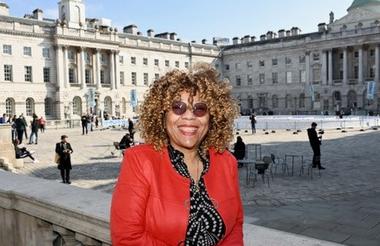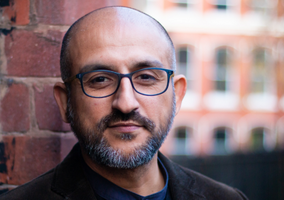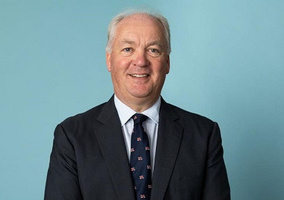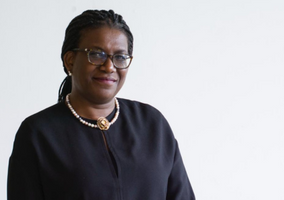In 1987, the Voice newspaper’s first editor Flip Fraser put on an unprecedented musical theatre show at the Shaw Theatre in London, celebrating over 5,000 years of Black history.
Black Heroes in the Hall of Fame became the first all-Black production to be staged in the West End when it moved to the Astoria Theatre two years later. It then went on to tour Jamaica and the US.
Joyce Fraser, Flip’s widow, was a science teacher at the time so was not involved in her husband’s creative endeavours.
She recalls the original show: “To have this play, which was telling us amazing stories about what we had achieved 5,000 years ago, was just absolutely mind-blowing.
“And also the production was incredible, the makeup, the costumes, the choreography – it was just incredible.”
Following Flip’s death in 2014, Joyce was encouraged to set up a charity in his memory. “At the funeral, people said to me: ‘Joyce, you’ve got to preserve his legacy. Our children need to see this show. Our grandchildren need to see the show.’”
So, she registered the Black Heroes Foundation in 2016 and has since put on productions to celebrate figures such as politicians John Archer and Sam King, and Trinidadian activist Claudia Jones, who organised an indoor Caribbean Carnival in 1959 that led to the first Notting Hill Carnival seven years later.
Now, 37 years after the original Black Heroes in the Hall of Fame show and a decade since Flip passed away, Joyce plans to stage her own production at the Shaw Theatre in tribute to her late husband.
Setting up a charity
Since the original 1987 production, Joyce has enjoyed a varied and successful career.
She became disillusioned with teaching and left to follow her passion of skiing in Italy, before working as a rep in Corfu during a year out.
Joyce then undertook a postgraduate programme on marketing and IT and went on to hold senior roles at organisations including Air Jamaica, the Australian High Commission, City and Guilds and UK Power Networks.
When Flip passed away in 2014, Joyce’s focus switched to setting up a charity to honour his legacy.
Flip had set up a Black Heroes Foundation social media page, which had around 3,000 followers, before his death but had not yet taken any legal steps to establish a charity.
However, Joyce says she used her late husband’s designs as a basis for its visual branding. “That's all his design with the colours, the logo for the Black Heroes Foundation. So, we used all this stuff to try and tell the stories.
“It took a lot of thought, a lot of time, a lot of courage. And I think it was in May 2016 I managed to get people together to form the charity. We weren’t really sure what we were going to do or how we were going to do it.”
As founder and chair, Joyce enlisted the help of a lawyer to get the charity registered and was also supported by the now-closed Small Charities Coalition, of which she went on to become a trustee.
Once Joyce had registered the charity, she planned to launch it at the Hackney Empire, the second venue where Black Heroes in the Hall of Fame had played, with a mini version of the original epic production.
However, Joyce was unable to get the necessary funding to put on the play at the East London venue, which had been a bingo hall before the original production was staged there. This, she says, was “a real awakening, because I had no idea it was so hard”.
Then the newly-elected mayor Sadiq Khan offered some space to put on the show at City Hall. She recalls: “Because we didn’t get any funding, I spent what other funds I had to make it happen. It was fantastic. It was really wonderful.”
After the launch, Joyce and her team of Black Heroes Foundation supporters met at the Leilani restaurant in south London to discuss the next steps. “We were like: ‘Well, folks, what are we going to do now? We’ve got no money, nowhere to meet, how are we going to survive?’ The restauranteur heard us and came up to me and said: ‘Joyce, I’ve been listening to you guys. I just love what you are doing. You can have my restaurant one night a month to do whatever you want. What night do you want? And so we agreed on the last Thursday of the month, and we named it the Black Heroes Soul Food Cafe.”
With a location for the monthly event agreed, Joyce then applied for funding to Wandsworth Council, which awarded it £5,000. The monthly event – which involves music, singing, dancing and quizzes – has continued since.
“We like to do the Soul Cafe once a month, but the funding is always a struggle. For the last year, we’ve been doing it online, because the last face to face we did was in October, when we did it at Battersea Arts Centre. The council doesn’t fund it anymore.”
‘I’ve turned into a different person’
A scientist at heart, Joyce underwent an artistic awakening when she put on further productions with the Black Heroes Foundation.
She wrote an initial draft for a play about Archer, the first Black mayor of a London borough, while she was at a loose end and then went on a writing programme in Yorkshire to get some feedback. It was negative at first – “It was kind of like, Joyce, have you seen a script before? Let’s call it a blueprint.”
“And then that night, I had a dream and it was like he [Flip] was there. But I didn’t realise the impact of that dream until I went back to my room and I started writing.”
Joyce’s rewritten play was initially live-streamed on Zoom before being put on in a tent at the Wandsworth Arts Fringe, which was attended by the mayors of Liverpool and Wandsworth, and then at Battersea Arts Centre to open Black History Month.
She has since helped the charity to put on productions about King, who sailed to England on the Empire Windrush before eventually becoming mayor of Southwark, and Jones.
Joyce says Flip would be surprised to see the work she has done since setting up the charity, which is in stark contrast to her earlier career. “He’s probably up there laughing now, seeing what I'm doing. I’ve just totally turned into a different person.”
‘There’s so much potential’
Besides her trustee role at the Small Charities Commission, Joyce recently stepped down from the boards of the Directory of Social Change and the Chartered Institute of Fundraising.
Joyce says she got involved with the organisations because she wanted to give back by sharing her expertise on issues such as race in the charity sector. She found the work she did with them interesting, but tough, and decided to step away to focus on the Black Heroes Foundation.
“I’ve got other priorities now and I really need to try and make my charity thrive. And so I decided that I was going to step down from all the other charities.”
Since 2009, Joyce has also been an associate lecturer at the Open University on its MBA programme.
Two years ago, Joyce’s work setting up the Black Heroes Foundation was recognised when she was awarded an OBE for services to the promotion of Black history and heritage.
Despite what she has achieved so far, Joyce is ambitious for her charity to grow further and is sometimes frustrated by the difficulties she continues to face in attracting funding.
“We should have a space where we’ve got the theatre, where we can have rehearsals, where we can teach the youth. We should have a space where we can have an exhibition on permanently.
“There’s so much potential in what we can do, what we shall do, but it’s just constantly trying to get over these hurdles.”
She has applied to institutional funders to financially back her latest production, the Story of Flip Fraser: A Windrush Story, but so far has been unsuccessful.
Joyce has launched a crowdfunder which has so far raised more than £3,000 of the £30,000 required to put on the show at the Shaw Theatre, including paying the performers.
Whatever happens, Joyce is determined to put on a show on 25 October. As a small charity, she says the Black Heroes Foundation is used to adapting in the face of setbacks.
“We are going to put it on, even if we can’t put the full production on because we don’t have enough money. I’m going to celebrate Flip’s 10th anniversary at the Shaw Theatre.”
Related Articles












